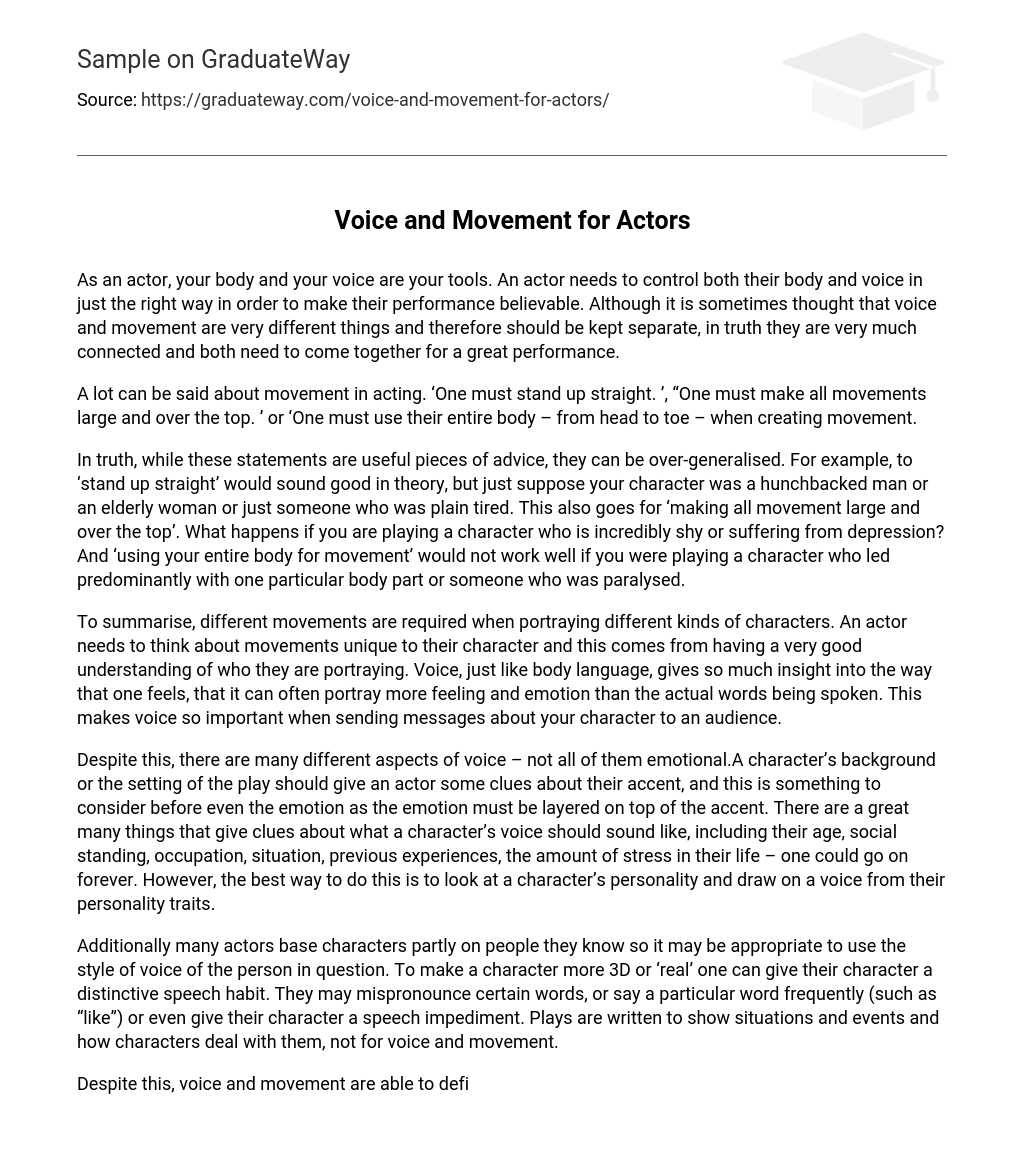As an actor, your body and your voice are your tools. An actor needs to control both their body and voice in just the right way in order to make their performance believable. Although it is sometimes thought that voice and movement are very different things and therefore should be kept separate, in truth they are very much connected and both need to come together for a great performance.
A lot can be said about movement in acting. ‘One must stand up straight. ’, “One must make all movements large and over the top. ’ or ‘One must use their entire body – from head to toe – when creating movement.
In truth, while these statements are useful pieces of advice, they can be over-generalised. For example, to ‘stand up straight’ would sound good in theory, but just suppose your character was a hunchbacked man or an elderly woman or just someone who was plain tired. This also goes for ‘making all movement large and over the top’. What happens if you are playing a character who is incredibly shy or suffering from depression? And ‘using your entire body for movement’ would not work well if you were playing a character who led predominantly with one particular body part or someone who was paralysed.
To summarise, different movements are required when portraying different kinds of characters. An actor needs to think about movements unique to their character and this comes from having a very good understanding of who they are portraying. Voice, just like body language, gives so much insight into the way that one feels, that it can often portray more feeling and emotion than the actual words being spoken. This makes voice so important when sending messages about your character to an audience.
Despite this, there are many different aspects of voice – not all of them emotional.A character’s background or the setting of the play should give an actor some clues about their accent, and this is something to consider before even the emotion as the emotion must be layered on top of the accent. There are a great many things that give clues about what a character’s voice should sound like, including their age, social standing, occupation, situation, previous experiences, the amount of stress in their life – one could go on forever. However, the best way to do this is to look at a character’s personality and draw on a voice from their personality traits.
Additionally many actors base characters partly on people they know so it may be appropriate to use the style of voice of the person in question. To make a character more 3D or ‘real’ one can give their character a distinctive speech habit. They may mispronounce certain words, or say a particular word frequently (such as “like”) or even give their character a speech impediment. Plays are written to show situations and events and how characters deal with them, not for voice and movement.
Despite this, voice and movement are able to define a character just as well as what happens to them.





